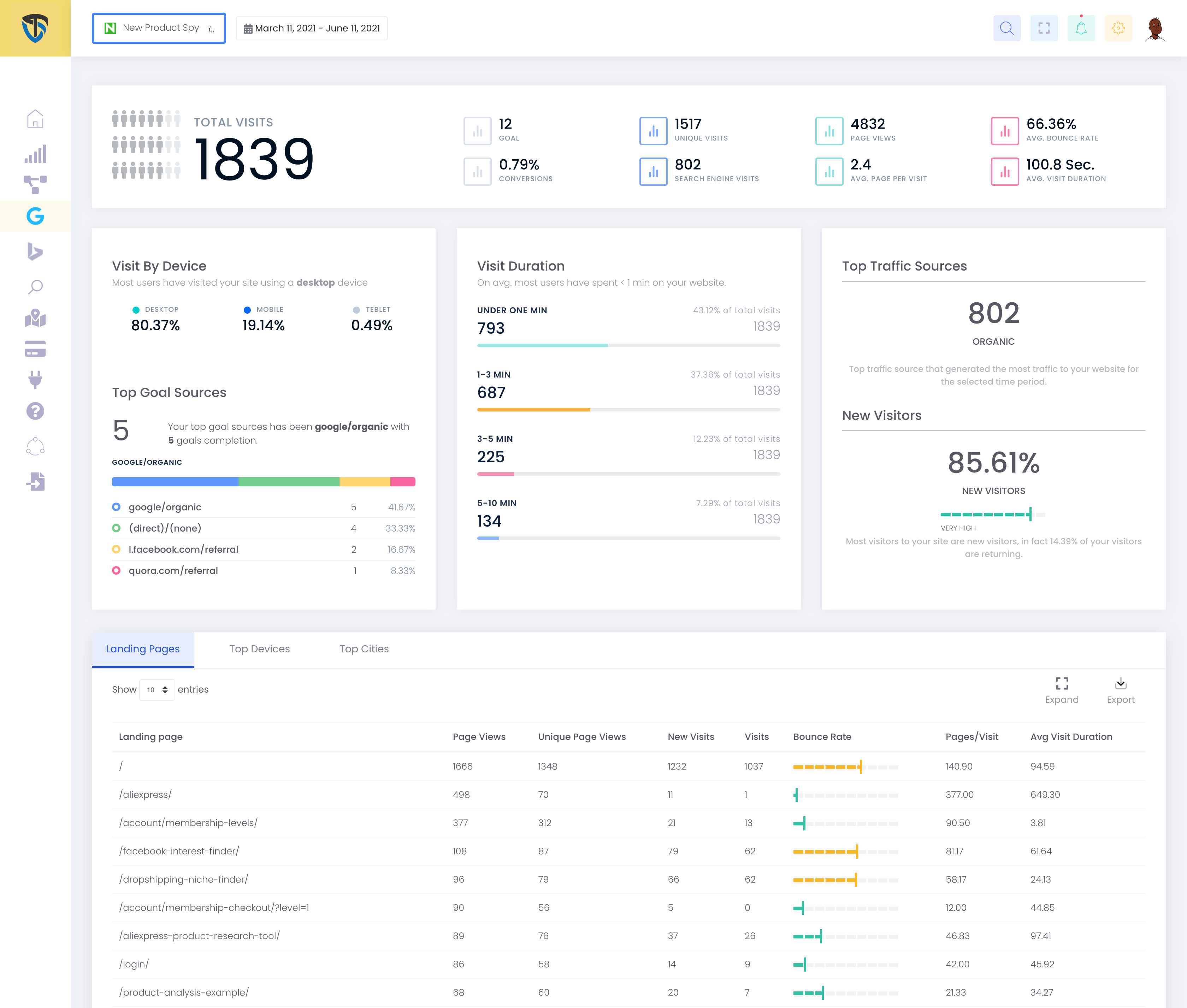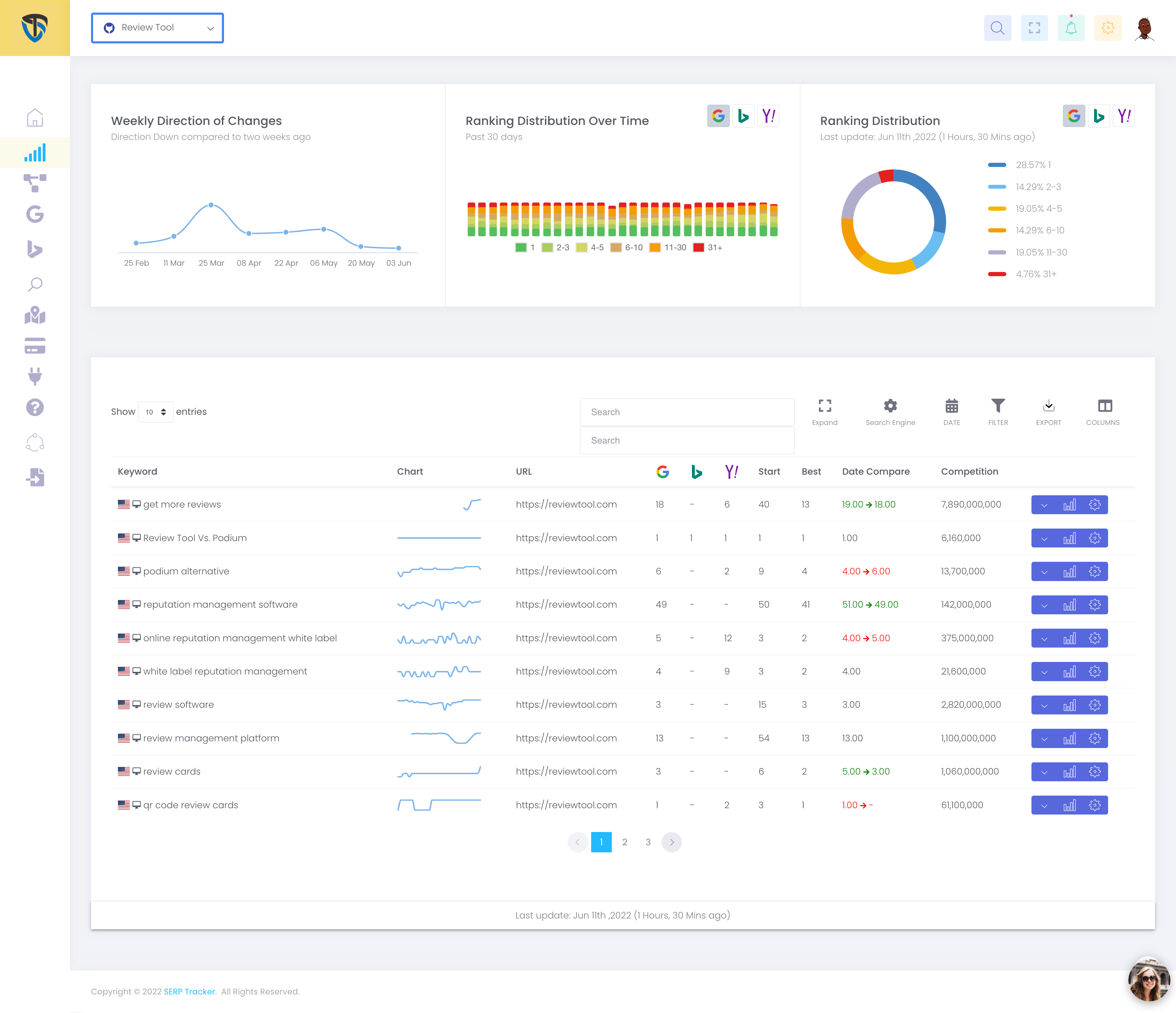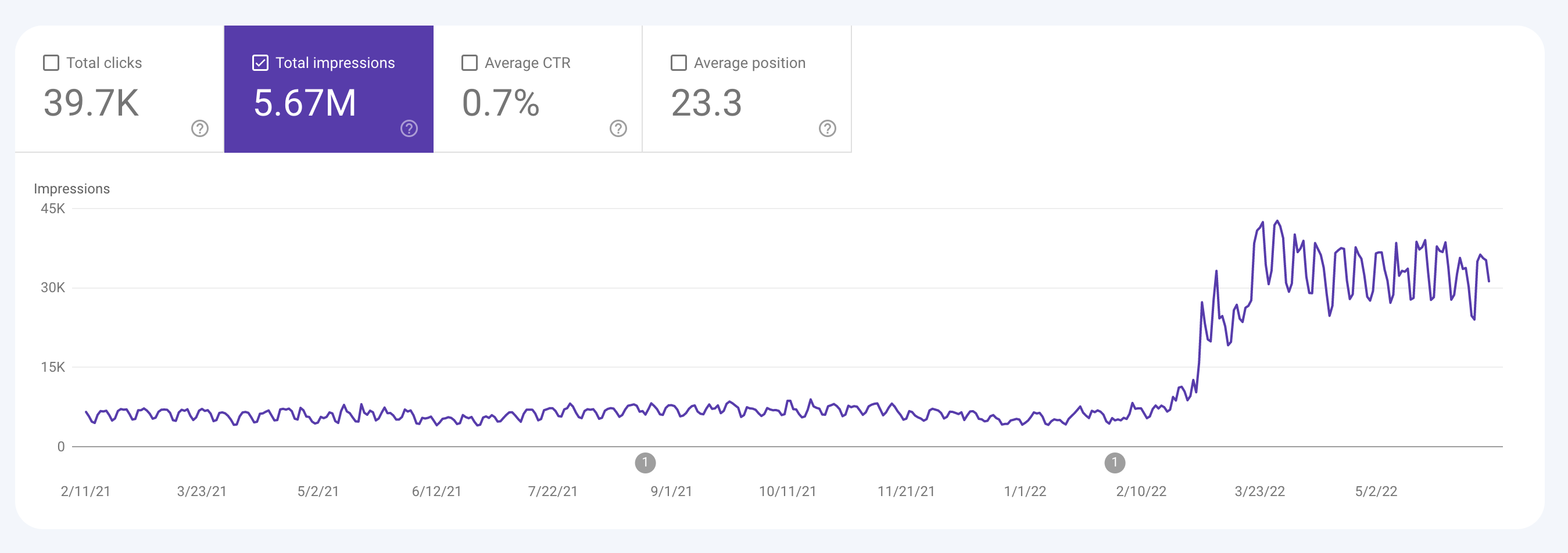-
Nexunom
Marketing firm providing different services and products.
-
Allintitle
Premium keyword research tool and long-tail keywords finder.
-
Review Tool
Review management tool used by local businesses to get more reviews.
-
Tavata
Two-way text-based website chat widget with Pay-Per-Text payment structure.
SEO Marketing Performance Measurement
Once an SEO program is implemented, how do you know if it is successful? This is when you turn to analytics. The three main areas you can look at to track success are traffic, rankings and conversions.
First, look at where your traffic is coming from. Understanding this, and watching for trends, can help you determine what is successful and what may need more work. Next, look at your search engine referrals. It can be helpful to know the percentages for each search engine, so you can tell if there is a big drop-off. If you have an equal drop-off over all the main search engines, it may be a problem with accessibility. But if all of the sudden there is a huge drop in your Google traffic, you may want to check for penalties.
You also want to analyze your traffic. If your bounce rate is too high, or visitors aren’t staying on pages very long, it may indicate there is an issue with your site - the visitors don’t find the information valuable, or easy to find, or another issue with the design of your site.
You will also want to track your rankings to see if you are gaining ground and moving up. If you started on the second page and have now made it to the first page, that can help greatly in gaining more visibility for your business. And as you continue to see gains, you should see more visibility for your company.
But then it’s also important to see what keywords are converting into traffic to your site. Then, once they are on the site, are those visitors becoming conversions? Are they signing up for your e-newsletter, or making a purchase, or calling? Increases in traffic and rankings may not mean much if those don’t then result in increased conversions.
Search engine optimization should result in increased conversions - meaning more business. The true measure of SEO success is an increase in revenue for your business.
Traffic

One of the first things you want to know is what kind of traffic is coming to your site, and where it is coming from. Direct navigation tells you who comes directly to your site, either by having bookmarked it, but typing it in, or following an email link. Referral traffic comes to you from different links around the web, or from an email link that has a tracking code, or a campaign link created by you. Search traffic refers to anyone coming to your site via a search engine. Knowing where your traffic comes from can help you identify any weaknesses, and show you where you may need to focus efforts.
If you keep an eye on where your traffic is coming from, you can look for trends, and also notice when something may be off. For instance, if you see a huge uptick in traffic to your site, but with no conversions or interactions, it can be an indication you have been hit with zombie traffic. Zombie traffic is when someone (maybe bots or a real person) comes to your site, but doesn’t really interact with the site much at all. They may visit one or two pages, but will mostly just sit. They can make your traffic numbers increase, but won’t help your conversion rate at all.
Conversion

Speaking of conversions, let’s look at why conversion rate matters. It’s not enough to just rank well for keywords, and then have a lot of traffic on your site. All that traffic means nothing if those visitors aren’t becoming customers.
It is important to know which keywords convert the most visitors for different pages of your site, and then you can focus on improving those pages even more for those keywords.
Conversion may not always equal a sale, but rather, may refer to a visitor performing a desired action on a page. Do you send an e-newsletter and you have a page dedicated to having people sign up for it? All of the people who complete that action are then conversions. Conversion refers to the visitor to your site completing the action you wanted them to. Conversions can come by means of actual sales (for e-commerce sites), phone calls, form submissions, chat inquiries, downloads, etc.
Rankings

Rankings are another way to tell if your SEO efforts are working. If your site goes from several pages back to page one or two on a search, it can be an indication that something you are doing is working. Likewise, if you go from page one or two to page ten, you’ll know something has gone wrong. A drastic drop could mean your site has done something wrong and been penalized, a new algorithm has been introduced and it no longer favors your site, or that you have somehow blocked access to allow bots to crawl and index your site.
It is important to remember that Google changes and introduces new algorithms regularly, so there may be fluctuation in rankings. Small fluctuations are typically not a cause for concern, but drastic ones may warrant you to take a closer look at what is happening.
It’s also important to note that no one can guarantee you specific spots in search engine rankings. The goal of SEO is always to help a business rank as high as possible for their search terms, but no company can guarantee specific spots, or even offer a specific timeframe for gaining those spots. If a company tells you they guarantee you’ll be at the number one spot for your keywords in 30 days, or makes another similar promise, investigate further to ensure the company does not use black hat techniques to fulfill these promises.
Impressions

Impressions refer to the number of times a page has been listed in a search engine results page, or an ad has been shown. Impressions are important because they can increase a brand’s awareness. The more you are seen, the more people recognize you, and the more times that happens, trust can be built.



